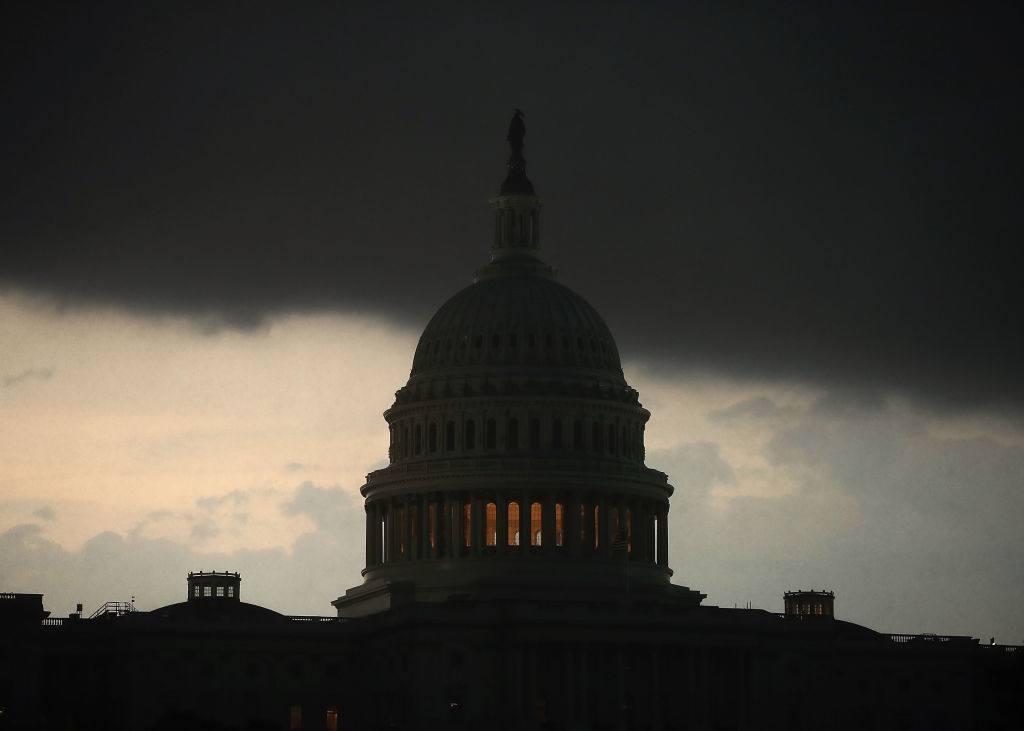What Are Americans Most Afraid Of? Corrupt Government Officials & Global Warming.

Get the world’s most fascinating discoveries delivered straight to your inbox.
You are now subscribed
Your newsletter sign-up was successful
Want to add more newsletters?

Delivered Daily
Daily Newsletter
Sign up for the latest discoveries, groundbreaking research and fascinating breakthroughs that impact you and the wider world direct to your inbox.

Once a week
Life's Little Mysteries
Feed your curiosity with an exclusive mystery every week, solved with science and delivered direct to your inbox before it's seen anywhere else.

Once a week
How It Works
Sign up to our free science & technology newsletter for your weekly fix of fascinating articles, quick quizzes, amazing images, and more

Delivered daily
Space.com Newsletter
Breaking space news, the latest updates on rocket launches, skywatching events and more!

Once a month
Watch This Space
Sign up to our monthly entertainment newsletter to keep up with all our coverage of the latest sci-fi and space movies, tv shows, games and books.

Once a week
Night Sky This Week
Discover this week's must-see night sky events, moon phases, and stunning astrophotos. Sign up for our skywatching newsletter and explore the universe with us!
Join the club
Get full access to premium articles, exclusive features and a growing list of member rewards.
If you're planning a haunted house this Halloween, you might want to set aside a room dedicated to America's real greatest fear. It could look a little bit like the U.S. Capitol.
For the fourth year running, a university survey has found that nothing scares Americans more than corrupt government officials. According to Chapman University, 73.6 percent of Americans report being "afraid" or "very afraid" of government corruption, more than any other fear on the menu.
But that's not the only thing keeping Americans up at night. [Spooky Sites: 7 of the Most Haunted Places in the United States]
Compared to previous years, Americans are increasingly stressed about environmental degradation. Five of the top-10 fears on the list have to do with the environment, from the pollution of oceans, rivers and lakes (fear No. 2) to global warming and climate change (fear No. 9).
Every year, Chapman University commissions a survey of a sample of 1,190 American adults, chosen to reflect the country's actual demographics. Participants are asked to rank how afraid they are of potential threats great and small, from cyberterrorism to zombies. The survey has a margin of error of plus or minus 3.9 percent.
Growing fears
While "corrupt government officials" have long topped the fear list, Americans are becoming more fearful of their representatives: In 2016, about 60 percent reported being afraid or very afraid of government corruption. Today, the number reporting that fear is nearly 14 points higher. This mirrors an overall rise in fear in all top-10 categories, the researchers found. In 2016, only one fear (corrupt government officials) was held by more than half of Americans. In 2018, every one of the top-10 fears scare the pants off more than half the country.
After river, lake and ocean pollution, which frightens 61.6 percent of Americans, Americans are most afraid of the pollution of drinking water (60.7 percent) and not having enough money for the future (57 percent). Fifth in ranking is a personal fear of loved ones becoming seriously ill (56.5 percent), followed closely by loved ones dying (56.4 percent). Air pollution comes in seventh (55.1 percent), followed by the extinction of plants and animals (54.1), and global warming and climate change (53.2 percent). High medical bills round out the top 10 (52.9 percent).
Get the world’s most fascinating discoveries delivered straight to your inbox.
Pushed out of last year's top-10 list are concerns about The American Health Care Act or "Trumpcare," a bill that would have partially repealed Obamacare and was being deliberated in the fall of 2017 (but ultimately did not pass), and fear that America might become involved in another world war or that North Korea would use nuclear weapons.
Real fears
The evolution of the list hints at a growing concern about the environment. Not a single environmental concern cracked the top 10 in 2016. By contrast, in 2017, Americans became worried about water pollution, drinking-water contamination, global warming and air pollution. In 2018, they added plant and animal extinction to that list. And global-warming concerns ticked upward slightly, from 48 percent reporting being afraid or very afraid of climate change in 2017 to 53.2 percent reporting that fear in 2018.
Just outside the top 10, 52.5 percent of Americans fear cyberterrorism, 51.6 are afraid that the U.S. will get involved in a world war and 49.3 apiece fear Islamic extremists and white supremacists. Just over 26 percent fear police brutality, a virtual tie with public speaking.
Least-feared on the list are clowns, which scare 7.1 percent of Americans — about the same as fear of strangers (7 percent) or people talking behind one's back (6.7 percent). Finally, 6.3 percent of Americans are very afraid or afraid of blood, while only 3.7 percent fear animals.
Originally published on Live Science.

Stephanie Pappas is a contributing writer for Live Science, covering topics ranging from geoscience to archaeology to the human brain and behavior. She was previously a senior writer for Live Science but is now a freelancer based in Denver, Colorado, and regularly contributes to Scientific American and The Monitor, the monthly magazine of the American Psychological Association. Stephanie received a bachelor's degree in psychology from the University of South Carolina and a graduate certificate in science communication from the University of California, Santa Cruz.
 Live Science Plus
Live Science Plus










